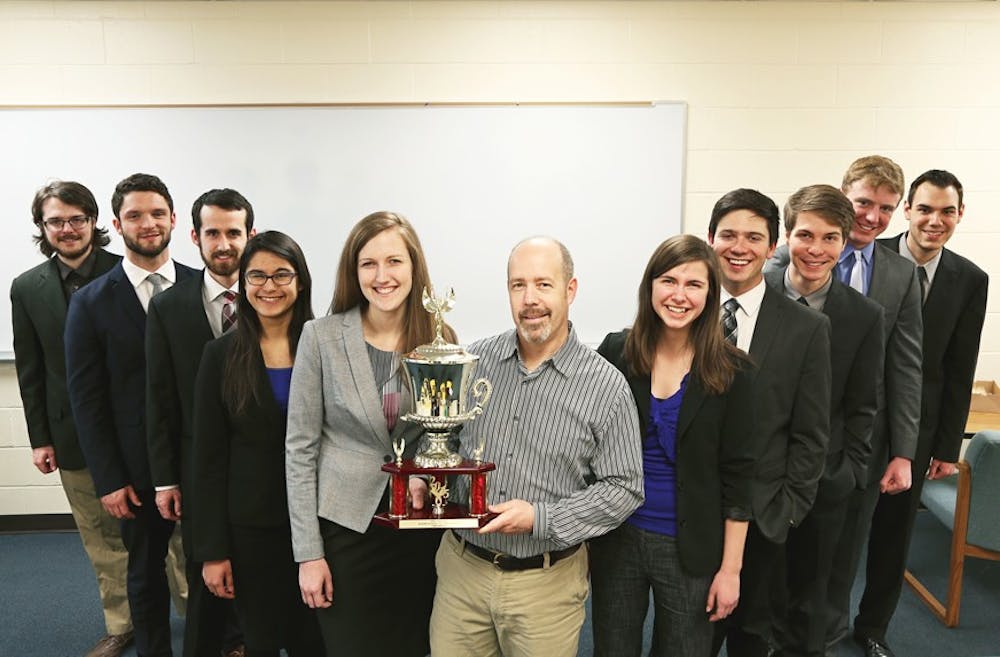By Julia Oller | Echo
Two years ago, Jim Spiegel's nerves were rubber bands that snapped when he saw the final score of the final round of the 2013 Association for Practical and Professional Ethics Intercollegiate Ethics Bowl National Championship in San Antonio, Texas.
After reaching the championship round for the first time in team history, Taylor lost to DePauw University by one point.
So when Taylor again reached nationals this year, Spiegel, Ethics Bowl team coach and philosophy professor, traveled to Costa Mesa, Calif. with many of the same people but with an entirely different reaction. Instead of apprehension, he felt a surprising calm.
"I really think it was supernatural, because that's not my MO," he said.
The team moved through round after round, and as the pressure mounted, so did Spiegel's hope for a redeeming end to their previous heartbreak. They cruised by Duke, Santa Clara, Texas Pan American and Villanova before defeating Indiana University in the semifinals.
"When we won the semifinal, I thought win or lose, we have maxed out in terms of matches you can be in. That should satisfy anybody," Spiegel said. "But then I thought, 'Sure would be nice if we'd win. Lord, I don't want to ask for too much. . . . '"
- - - - - - - - - - - - - -
One afternoon a week, heated arguments break out in Reade 127. The voices aren't mean-spirited, though. It's just the 13 Ethics Bowl members engaging in passionate debate on issues that run the gamut from transgender bathrooms to horse slaughtering.
Founded in 1998 and coached by Spiegel since 1999, the team prepares cases for 15 different ethical issues to present at the Regional Ethics Bowl each fall. One of Taylor's two teams placed second last November, guaranteeing a spot in the National Bowl on Feb. 22.
The 32 teams competing at nationals come from 10 different regions and include both massive Division I schools and tiny private universities.
On Taylor's team, five starters each prepared for three of the 15 possible cases. Each match consists of two rounds in which one team presents its argument and the other rebuts it before they switch sides for the next case.
At the end of each round, a panel of judges probes the presenting team before awarding points and announcing a winner.
- - - - - - - - - - - - - -
Senior Jess Biermann's anxious excitement balanced out Spiegel's peaceful demeanor going into the final round against Whitworth College, the 2012 National Champions.
"We knew we were capable of (advancing), but we were really nervous," he said. "They're an excellent team, some of the best debaters that we've ever come across."
Biermann presented first-on the ethics of crowdsourcing (gathering information from large groups of people).
When Whitworth's case on transgender bathrooms deteriorated during the Q-and-A with the judges, Spiegel saw a victory in the making.
"In my mind, I could just see their point total going down to the point where I thought, 'We could win this.'"
After the last seconds of the round ticked away, Biermann couldn't believe what he saw on the scoreboards. Taylor had won its first national championship.
"I looked across at the numbers of all three judges and had to reread it five times," Biermann said.
In the ensuing celebration, one handle of the winner's trophy broke off but Spiegel's nerves held firm. Two years and 90 cases after its heartbreaking loss, Taylor was victorious.
No debate necessary.





